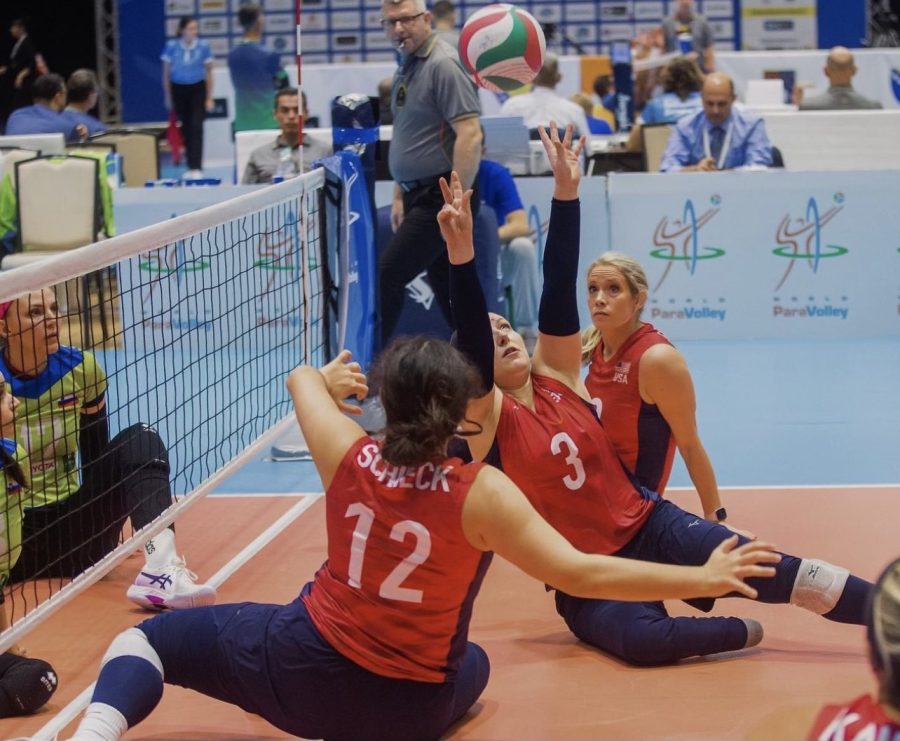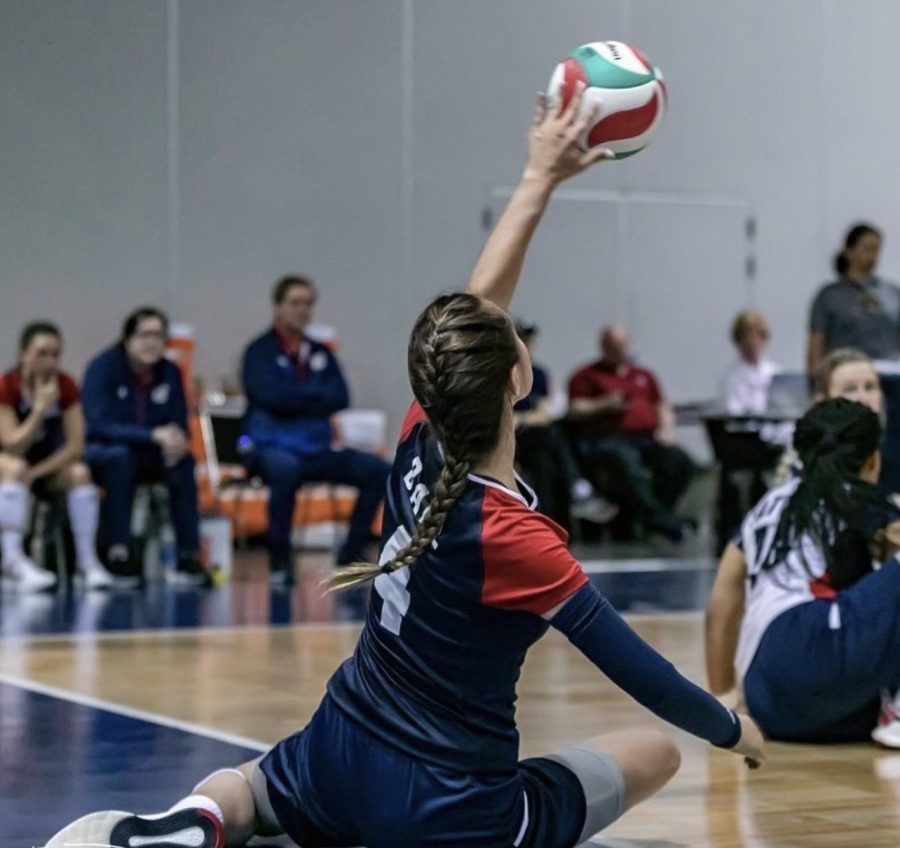Give adaptive athletes equal opportunity
February 13, 2023
For as long as I can remember, I have been an athlete. One of the only other things in my life that has been this constant, is my disability. These two aspects of my life have labeled me an adaptive athlete, which I am not complaining about. The issue is that for many, the two seem to be an oxymoron.
I won’t blame others for their lack of knowledge on the Paralympics, because I didn’t even fully know what they were until I started playing sitting volleyball. But why is this the case?
I was born without one of the bones in my lower leg, leading me to have my foot amputated as a baby. Since my amputation, I have been using a prosthetic and competing in sports just like others around me. I have also begun playing adaptive sports, which are an option for those with physical disabilities.
I have achieved the highest degree of success that I can in my capacity, yet a Paralympic gold medal does not hold the same significance as an Olympic gold. I credit this to the lack of coverage of Paralympic sports, rather than the belief that adaptive sports are a downgrade of able-bodied sports.
The list of “famous” able-bodied athletes is never ending, but when asked to name a few disabled athletes, the average person could probably list two or three. I see my peers compete in the highest level of sport and every day, just like the able-bodied athletes that so many idolize, yet they are fighting to have their passion acknowledged.
As a disabled athlete, the track I have been on since I began playing adaptive sports led me to the Paralympics. As an able-bodied athlete, some strive for the Olympics.
These two paths are not different in terms of success. But they’re treated differently – and like one is more successful than the other – partially because there are no resources for disabled athletes like there are for able-bodied athletes.
I compete in my sport differently than the typical student-athlete may, but I face all of the challenges that come with the committed lifestyle: the struggle of time management, a social life that takes a backseat to my sport, no real days off. The biggest difference between me and others competing while in college is that my sport is virtually unknown. I am the only sitting volleyball representative in Oregon, and one of the few disabled-athletes to have attended Linfield University.
I do not have the opportunity to participate in collegiate sports at Linfield because sitting volleyball is not offered at this level – but it could be, and that would open doors for many more students to participate in this and other adaptive sports.
Because of lack of access at the college level, I have the choice to train on my own, or move to a different state. When I was 17, I moved to Oklahoma, which is where the U.S. Women’s National sitting volleyball team is located. This move was my best chance at finding success for myself, but even then, that only allowed me to practice with others who share my disability, and it did not guarantee that I got to compete, or make any rosters.
This is something that adaptive athletes face often;because there are no local options for them to train, they are forced to uproot their lives.
As a student, I am frequently asked by peers, “Why are you at Linfield if you have a gold medal?”

As dramatic as that sounds, this is the reality of Paralympic athletes. Like most disabled athletes, I did not go to college to play my sport. I chose Linfield to get an education, because I know that right now, I would struggle to find an opportunity to play volleyball wherever I went.
This isn’t an Oregon issue either, it is nationwide. My teammates in college around the country are experiencing this as well. Little to no representation, while still recognizing them as elite athletes who have made their school proud.
Emma Schieck, a Paralympic gold medalist who is a senior at the University of North Carolina, is dealing with the same lack of coverage for adaptive sports.
“UNC really has done very little. There are very few intramural options and they are poorly run and advertised,” Schieck said, “They don’t have any competitive options like a club or varsity team. Overall it has been pretty disappointing.”
Another teammate of mine who has gone through similar experiences with a lack of support regarding adaptive sports is Maddy Ball, who attends Florida State University.
“For me, the school wouldn’t let me reserve any space on campus to train, even if it was once every other week,” Ball said. “I wasn’t allowed to take specific classes because of our travel schedule and they told me my absences will not be excused because I wouldn’t be wearing FSU gear while I play. Representing the United States of America wasn’t enough.”
Linfield, like too many colleges across the country, prides itself on the success of their “special” athletes, without providing all necessary resources for these athletes to succeed. I am not the only disabled person at Linfield who would benefit from working with athletes who share similar disabilities. Able-bodied students at Linfield would benefit from this as well. Being around people who do the same things as you, but in a different way because of their disability, is important because it helps everyone gain empathy.
A solution to this is giving students more opportunities to participate in adaptive sports. Linfield’s athletic program is the perfect opportunity to begin this. With access to gyms and participation from students, I know that more can be done. I suggest that clinics be held on campus for athletes both disabled and able-bodied to participate in.
I am thankful that the faculty and staff at Linfield have given me a platform to speak about the Paralympics and my journey. I want this platform to continue to grow because that is how change will be made. I do think it is important to highlight wins like my Paralympic story because it shows students and athletes that there are so many different ways of competing and succeeding.
I am one of many who are eager to get coverage for adaptive sports. But it all starts with access, which colleges across the country can provide by thinking outside the box when it comes to creating their IntraMural sports plan.

